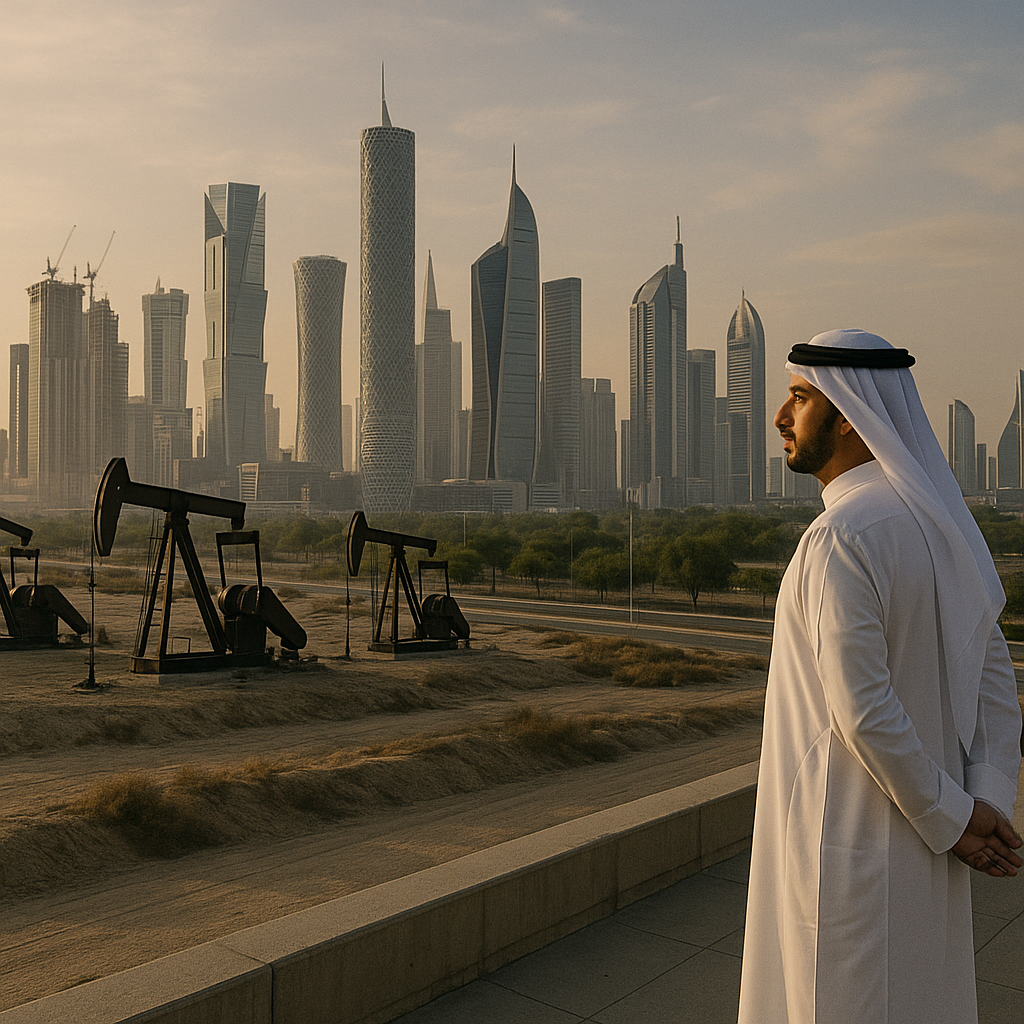From Oil Wealth to Digital Power: GCC Nations Chart Path to Sustainable Development
A study by the Faculty of Economics at RUDN University finds that digitalization is a critical driver of sustainable development in GCC countries, helping diversify oil-dependent economies, boost efficiency, and cut emissions. However, uneven access, digital inequality, and governance challenges mean its benefits are not equally shared across sectors and populations.

Digitalization is emerging as one of the most powerful forces shaping the future of the Gulf Cooperation Council (GCC) economies, and a new study from the Faculty of Economics at P. Lumumba RUDN University in Moscow underlines this momentum. Researchers Ravil Ramilevich Asmyatullin and Sofya Grigoryevna Glavina examine how Bahrain, Kuwait, Oman, Qatar, Saudi Arabia, and the United Arab Emirates are leveraging digital technologies not just for economic diversification but also to align with the global sustainable development agenda. Their analysis highlights that the region’s reliance on hydrocarbons has left it vulnerable, and digital transformation now stands out as a credible path to resilience, innovation, and long-term stability.
Technology as the New Oil
The report positions digitalization as a dual catalyst: it drives economic diversification while simultaneously building social and environmental resilience. By enabling growth in finance, tourism, and IT, digital tools are creating jobs, attracting investment, and boosting GDP. At the same time, they are tackling pressing regional challenges such as water scarcity and pollution. Smart technologies for resource management are helping to optimize water consumption and improve agricultural productivity, while environmental platforms track emissions and waste to guide evidence-based policymaking. In addition, digitalization is transforming healthcare, education, and welfare services, making them more accessible and efficient. Innovation hubs like Dubai’s Silicon Oasis are attracting global startups, reinforcing the Gulf’s ambitions as a regional technology hub.
Indices, Indicators, and Surprises
The study makes extensive use of indices such as the Global Digitalization Index (GDI) and the Innovation and ICT Diffusion Index (IDI) to measure progress. According to 2024 rankings, the UAE leads with a score of 61.4, while Saudi Arabia, Bahrain, Kuwait, and Oman are categorized as “adopters,” with scores between 41.7 and 54.4. Econometric modeling tested the links between digitalization, socio-economic variables, and ESG (Environmental, Social, Governance) outcomes. The findings were at times counterintuitive: inflation emerged as one of the strongest predictors of ESG performance, while GDP growth and the Human Development Index, often seen as reliable indicators, showed little statistical significance. Other factors, such as unemployment, government efficiency, and CO₂ emissions, displayed more consistent negative effects. These results suggest that the pathways linking digitalization and sustainability are far more complex than conventional assumptions allow.
Country Snapshots: Six Models, One Common Thread
By building econometric models for each Gulf state, the research offers a detailed view of how digitalization shapes sustainability. In Bahrain, IDI and export performance strongly supported sustainable development. Qatar’s model highlighted population and fertility rates as heavy influences, though IDI again stood out as a decisive factor. Kuwait displayed similar results, with IDI driving progress while forest area loss and high imports weakened sustainability. Oman’s results pointed to population growth and forest resources alongside digital indices, while in the UAE, exports and fertility rates interacted with IDI to shape the model. Saudi Arabia’s case confirmed the significant role of both IDI and GDI, coupled with demographic dynamics. Across all six nations, IDI was consistently the most important driver, demonstrating that innovation and ICT diffusion remain the linchpin of sustainability in the Gulf.
Contradictions, Challenges, and Opportunities
The study underscores that digitalization is not an automatic fix. Its benefits are unevenly distributed across sectors and populations. One striking paradox was that moderate inflation, normally a sign of economic weakness, showed positive economic effects in certain Gulf contexts, reflecting regional demand patterns. On the other hand, unemployment clearly undermined sustainability indicators, and the relationship between economic freedom, human capital, and ESG performance appeared inconsistent. This complexity highlights the need for context-specific strategies rather than one-size-fits-all policies.
The authors also warn of risks. Job displacement, monopolistic tendencies, cybersecurity vulnerabilities, and widening digital inequalities could undermine the promise of transformation. In societies where access to technology and education is uneven, digitalization may exacerbate divides instead of closing them. Strong governance and regulatory capacity are therefore essential to ensure that technology promotes inclusivity rather than deepening inequalities. Expanding education and digital skills, closing infrastructure gaps, and ensuring equitable access to technology are highlighted as priorities for policymakers.
The Gulf at a Crossroads
Digitalization is a critical lever for sustainable development in the GCC, offering a realistic alternative to oil dependence. The evidence shows that digitalization is already cutting energy use, reducing emissions, and boosting efficiency in resource-scarce environments. Yet the path forward depends on how effectively governments address structural inequalities, strengthen governance, and integrate environmental imperatives into economic planning.
The authors argue that the future of the Gulf will not be defined by the depth of its oil reserves but by the breadth of its digital ambitions. For resource-dependent economies standing at a crossroads, digitalization represents more than technological adoption; it is a strategic choice that will determine their place in the global sustainability race. Whether the Gulf emerges as a global leader in sustainable digital transformation will depend on how boldly it manages this transition today.
- FIRST PUBLISHED IN:
- Devdiscourse










